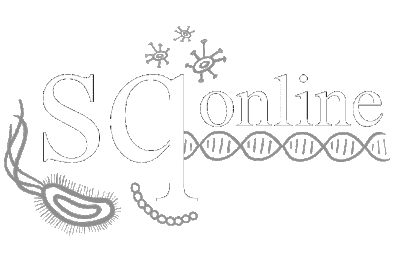With great power comes great responsibility; as is true in Spider-Man’s world, is in ours as well. In our dynamic society, advancements in science and technology are ubiquitous and occur at a seemingly exponential rate — take biotechnology, for instance. In the past few decades, we have made great strides forward in this field, as seen in the development of genetic engineering, medicine, vaccines, and modified crops. However, this momentous progress in biotechnology has not only changed numerous lives, but has also sparked a debate about the ethics regarding these innovations, one of which is present in our everyday lives: genetically modified foods.
One such debate results from genetically modified foods, as these products raise public concern about their safety. According to Statistica, genetically modified crops, which help to improve crop resistance and increase nutritional value through the genetic modification of the crops, accounted for 70.9 million hectares of land in the U.S. Even with this large amount of genetically modified crops a significant percentage of Americans (26%) specifically seek out non-genetically modified foods. These Americans represent the portion of the population concerned about the potential hazards of these genetically modified foods, which have been believed to decrease antibiotic effectiveness, as well as increase risk of allergies, stunted growth, and cancer, according to several studies. Additionally, genetically modified foods result from the exchange of genetic information, usually added from another set of DNA, which is a concern to many adversaries of genetically modified foods.
However, this concern seems to result from a lack of awareness about these foods, rather than the danger of the food itself. An immense amount of evidence indicates that genetically altered foods are safe to eat, and many of the experiments that warn of the risks of eating genetically modified foods have been refuted due to lack of details or significant errors in experimental design. A prime example is the experiment run by Gilles-Éric Séralini in which he linked genetically altered foods to increased risk in cancer and death. He was widely criticized in the scientific community for the minuscule sample size, the short duration of the experiment, as well as the use of a rat species with a predisposition to tumors. However, to an uninformed civilian, this study might be enough to reinforce an antagonistic attitude toward genetically modified food, as they would be unaware of the flaws in the experiment and they would take the results as fact, without accounting for the bias of the experimenter nor the misleading study. Instead, people should be informed of the significant accumulation of scientific studies from credible, nonpartisan sources, including many from the European Commission, that reaffirm that there are no significant risks from consuming genetically altered foods. Additionally, in educating the population about genetic transformation, they will realize that the exchange of DNA is a natural phenomenon, as in the case of viruses, which have often introduced new genes to various organisms throughout history.
Nevertheless, the controversy remains, and people remain uneducated about biotechnology. To rectify this problem within the population, a rudimentary understanding of the technology is essential. In order to do so, people must understand the basics of biology behind the technology, which can only result from education and readily available and accurate information. Additionally, society must place an emphasis on verifying unbacked claims, as well as understanding the requisites of a sound experiment. However, it is also the responsibility of the scientific community to continue to provide valid data and research, execute extensive experimentation, and persistently pose questions to provide evidence to either support or reject biotechnological innovations. Through cultivating a more perspicacious population, many concerns regarding biotechnology that stem from ignorance and misinformation may be placated.
However, another problem arises which is much harder to solve than simply educating the public. Although humans have proven that we can edit the genome of organisms, many challenge whether we should alter nature and “play God”, and many more question the potential risks with changing the natural order of life. Should we influence nature so heavily by changing and integral part of life? These questions are not so easily answered, and must be considered in the field of biotechnology. A potential solution for this is an intensive study of the risks and benefits of such new technology to influence the public’s opinion. Even then, it is hard to discern the morality of editing the genome of organisms, which accounts for the heated debate within the scientific community over genetically modified organisms.
A tenacious junior at Westview High School, Vivian Nguyen has always been fascinated by the way the world works. Science has always held an important role in her life, and never has it been more true than in high school, where science is her favorite subject and she excels in her Honors and AP science classes. Her inspiration for her essay derives from her passionate interest in genetics and biology. Her enthusiasm about biology has influenced her to pursue a career in the medical field, especially since she is particularly interested in human biology. Although most of her time and energy is focused on her academic achievements, she also loves to volunteer, especially with kids. She volunteers with the Catalyst for Success organization, which inspires elementary school kids to become interested in science, and she also volunteers with Operation Courage is Beautiful, a non-profit organization that sends care packages to servicewomen across seas. But she is not only an ardent, altruistic high schooler, she is also a musician and athlete. She has played piano for fourteen years and volleyball for five, both of which are an integral part of her life.
